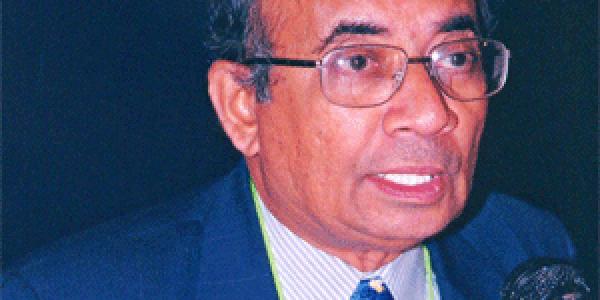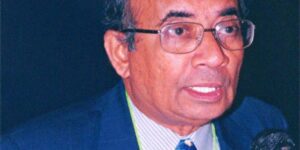N Vittal, the horse he backed did fly….

N Vittal was prescient to support India’s IT services industry at a time when it was a mere fledgling. Once Vittal took charge as the secretary, department of electronics, the pace took another dimension.
By Saurabh Srivastava
N Vittal, who passed away on August 4, is perhaps the best example of a bureaucrat who changed the destiny of an industry that redefined India. For those of us who worked with him closely, he was a legend in his own lifetime and no ode we can pay him would ever do justice. In 2000 October issue ‘Career Magazine’ published his article to make Kerala an intelligent state. Even after two decades it is relevant in our digital revolution.
There’s a popular refrain that the reason the IT services industry did well is because the government didn’t understand it and l eft it alone. Nothing can be further than the truth. In 1989, when I first set up my startup, it took a year to get the necessary permissions, import duty on hardware and software were 160%, there was no angel or VC or debt available and no domestic market. India’s forex reserves were too precarious to be used, only the IITs graduated a few computer science graduates, and no telecom structure worth the name. If you didn’t make a call from Delhi to Mumbai before 6 am, you had to wait till 11 pm.
eft it alone. Nothing can be further than the truth. In 1989, when I first set up my startup, it took a year to get the necessary permissions, import duty on hardware and software were 160%, there was no angel or VC or debt available and no domestic market. India’s forex reserves were too precarious to be used, only the IITs graduated a few computer science graduates, and no telecom structure worth the name. If you didn’t make a call from Delhi to Mumbai before 6 am, you had to wait till 11 pm.
This is what drove Harish Mehta, Ashank Desai, K V Ramani, and me to kick start the founding of Nasscom to better engage with the government because we could see that our fledgling $50-million industry could become a great asset for India but understood that the government had to be on board for this potential to be realised . Many others joined the caravan early on, and NR Narayana Murthy played a stellar role in helping us raise resources.
There were many bureaucrats who supported our cause. However, once Vittal took charge as the secretary, department of electronics, the pace took another dimension. He was an intellectual who was extremely practical at the same time. He took the time to understand what was possible and the huge impact it would make on the country’s forex reserves. Once convinced, he left no stone unturned to make it a reality. And he was extremely lucky to have an outstanding team—N Gopalaswamy ( then joint secretary, electronics), and K Roypaul (then, also, joint secretary, electronics). All were committed to the cause.
We wanted the environment of Silicon Valley to compete globally, but he understood that it would take a long time for that evolution to happen across India. So he came up with the idea of creating islands where he could give us what we needed. Thus was born his signature creation—the Software Technology Parks of India (STPI) scheme, with the full collaboration of Nasscom. This solved most of our problems—single-window clearances, tax exemptions, telecom bandwidth and more. It virtualised the concept of EPZs, unburdening the government of the need for infrastructure, and campuses like Infosys’s bloomed. That one master-stroke did more to unlock the industry’s potential than anything else.
There was memorable occasion that defines who he was—a rare bureaucrat who was also a great leader, passionate and willing to take risks if served a greater cause. I think it was early 1991, a difficult time for the country. A handful of us from Nasscom were in his office with a list of asks which would propel the industry forward. His proposition was simple. If the industry could promise it would quadruple in size from $100 million to $400 million, he would have a good case to get the required approvals. We told him it was impossible for a service industry to get the contracts, quadrupling its workforce, train them, etc, in time to achieve this. He kept pushing and finally said that if we couldn’t promise, then our asks won’t happen. We told him that would be a pity but we couldn’t promised what we couldn’t deliver. With that his countenance changed. He said that many industries may have gone along just to get what they wanted, but we didn’t. So, now we had earned his trust. He said he would tell people that we would try to quadruple and negotiate for our asks. We told him not to damage his credibility as we really wouldn’t achieve the target. That is when he told us the story which is now part of IT folklore.
One day, infuriated by something Birbal did, Akbar asked for his head by the evening. Birbal asked for a year’s reprieve, during which time he promised to make Akbar’s horse fly. When his friends berated him for his stupid promise, Birbal explained that if he hadn’t made that promise, he would be dead by evening. Now he had a year. In that year, he said, the horse could die, he could die, the emperor could die and, who knows, maybe the horse would fly . Relating to our situation, Vittal said that few would remember whether we said we would achieve the target in 1992 or 1992/93 and, by then, his posting may change, his minister’s portfolio may change, the government might change but, he was confident that the country would benefit, as we would achieve the target, albeit an year or two later.
As we now know, he was prescient in more ways than one and the horse he backed did fly. Our industry, now at $250 billion, created the brand for New India, accounts for 25% of India’s forex reserves, employs over 10 million people directly and indirectly, and sparked the startup revolution.
The author is the founder of Indian Angel Network and past chairman of Nasscom. Views are personal.
Courtesy : Financial Express






